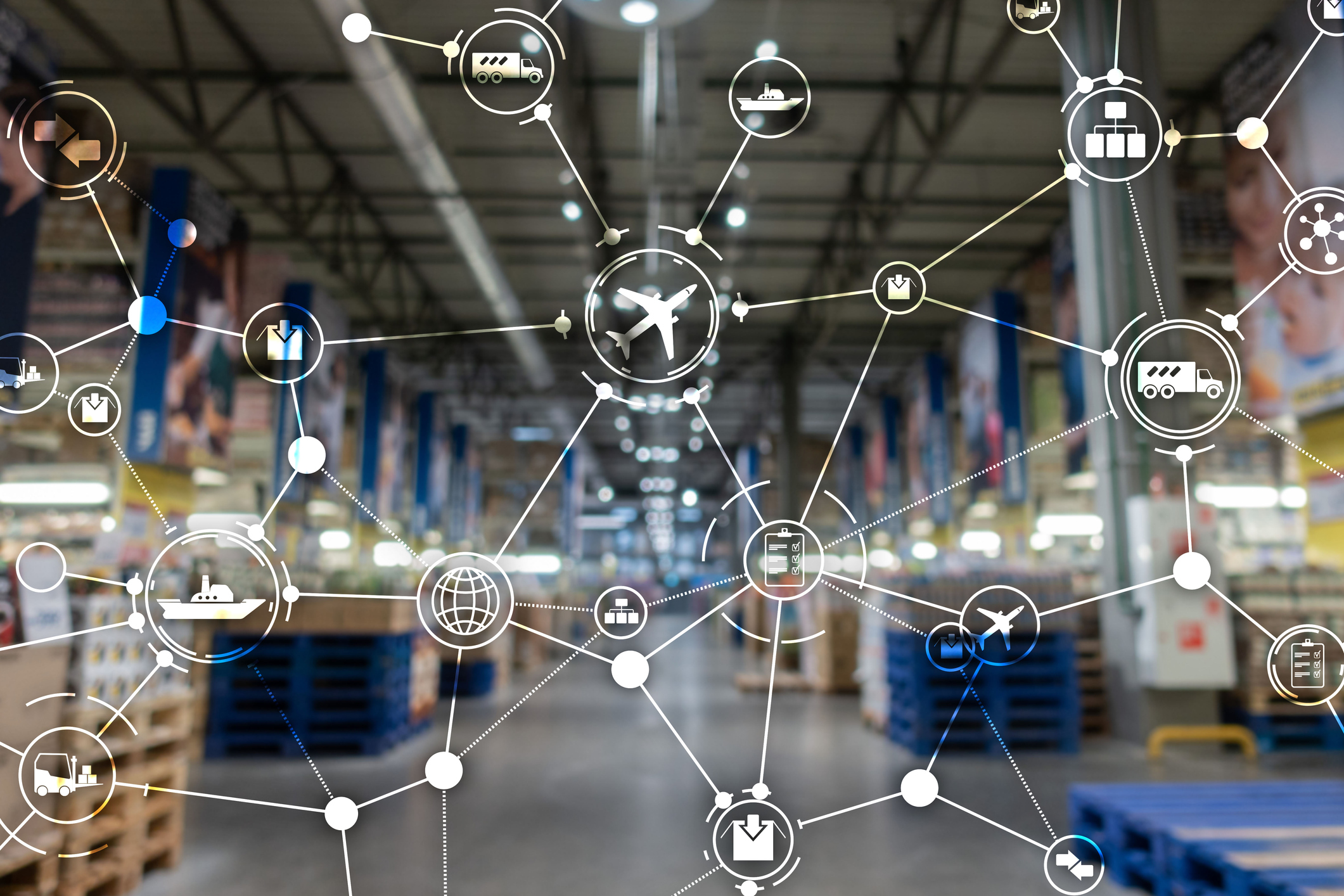We live in a time when technology is everywhere, whether in communication, work, or education. Technology allows business owners to conduct business better and more efficiently. Using the true potential of the internet, supply chain management has undergone remarkable change, enabling enterprises to alter their ways of managing inventory, communicating critical information effectively, placing orders efficiently, etc.
Let’s look at some technologies that have helped supply chain management harness its full potential and accelerate business progress.
Radiofrequency Identification Tags
An RFID tag has three primary components: antenna, transponder (title), and transceiver. When an RFID moves past a reader, the information is processed to the database. These tags have a low frequency and short range. Scientists first introduced the technology in the 60s. However, the recent changes have lowered the cost and increased its application extensively. An RFID tag makes information updating and management more efficient and prompt without entering the data manually. For instance, if a purchase is made at the store using the RFID tag, the information will directly be sent to the supplier and the store manager to forecast any upcoming inventory shortage.
Virtual Marketplaces
Virtual marketplaces are also called e-markets, electronic markets, or even precise marketplaces. These markets have the following characteristics:
- They rely on the internet.
- Information is provided about the buyer and seller.
- There is a neutral behavior shown with both buyer and supplier.
There is no middleman; buyers and sellers communicate directly. Virtual marketplaces place significant emphasis on customer satisfaction and high-quality services.
 Blockchain
Blockchain
Blockchain is one of the latest technological trends in the business world, and its market is expected to reach $60 billion by the end of 2024. This technology has immense untapped potential, especially regarding global trade. International trade is increasing remarkably, and there is a greater need for better transparency and efficiency across the supply chain.
Blockchain can lower the cost of transactions and help elevate the integrity of the global supply chain. Many industries, especially food manufacturing companies, use this technology to track their ingredients, finished goods, allergens, etc.
5G
5G and IoT are not very different; consider them two sides of the same coin. 5G is much faster and more efficient than IoT, creating a seamless connection between companies and buyers using better bandwidth. 5G benefits consumer goods, logistics, and retail industries by creating tremendous data and seamless automation actions. That is one of the primary reasons CRL companies use 5G technology to transform themselves to be like Amazon.
Digital Brain
Various companies operate multi-tenanted complex ecosystems. Sometimes, it becomes difficult to monitor everything happening at once. Too much reliance on people carrying out many interdependent tasks can make hitting specific efficiency metrics difficult.
Companies can make a digital brain that functions from which a variety of research, decisions, and measures can take place as a central point. You can do all this by using vast data technologies, machine learning, AI, and graphs. The digital brain becomes quicker at daily tasks and automates actions by bots due to the removal of silos. For instance, Infosys used knowledge-based graph concepts to boost food traceability across its supplier ecosystem and lead a grocery chain. Digitalizing many upstream supply chain methods allows businesses to do this.
Augmented Reality (AR)
Today, robotics and AI prove they can produce value in business activities. Innovative applications of augmented reality (AR) haven’t sought a great deal of traction, and businesses have not comprehensively adopted AR in industrial settings. AR helps employees understand and better perform a comprehensive array of tasks. It doesn’t rely on the post-method quality control checks after detecting human mistakes. Instead, it allows for better evaluation and guidance while performing tasks.
AR adoption ramps up business operations and enhances human capability to understand the level of tasks. It feeds information into the human mind that is helpful rather than distracting.
AR is the best choice for the maintenance and manufacturing process as it enhances the use of manuals. However, several businesses today do not realize the urgency of integrating AR and VR into their operations. These setups need to be given a thought, as they hold the potential to work wonders in maintenance and manufacturing. For smooth integration into the system, companies must direct their attention to employee training.
Conclusion
All in all, supply chain management has significantly been transformed using the power of the internet. It has also allowed business owners to take their business to the global level and enter undiscovered markets.
 About Complete Controller® – America’s Bookkeeping Experts Complete Controller is the Nation’s Leader in virtual bookkeeping, providing service to businesses and households alike. Utilizing Complete Controller’s technology, clients gain access to a cloud platform where their QuickBooks™️ file, critical financial documents, and back-office tools are hosted in an efficient SSO environment. Complete Controller’s team of certified US-based accounting professionals provide bookkeeping, record storage, performance reporting, and controller services including training, cash-flow management, budgeting and forecasting, process and controls advisement, and bill-pay. With flat-rate service plans, Complete Controller is the most cost-effective expert accounting solution for business, family-office, trusts, and households of any size or complexity.
About Complete Controller® – America’s Bookkeeping Experts Complete Controller is the Nation’s Leader in virtual bookkeeping, providing service to businesses and households alike. Utilizing Complete Controller’s technology, clients gain access to a cloud platform where their QuickBooks™️ file, critical financial documents, and back-office tools are hosted in an efficient SSO environment. Complete Controller’s team of certified US-based accounting professionals provide bookkeeping, record storage, performance reporting, and controller services including training, cash-flow management, budgeting and forecasting, process and controls advisement, and bill-pay. With flat-rate service plans, Complete Controller is the most cost-effective expert accounting solution for business, family-office, trusts, and households of any size or complexity.



